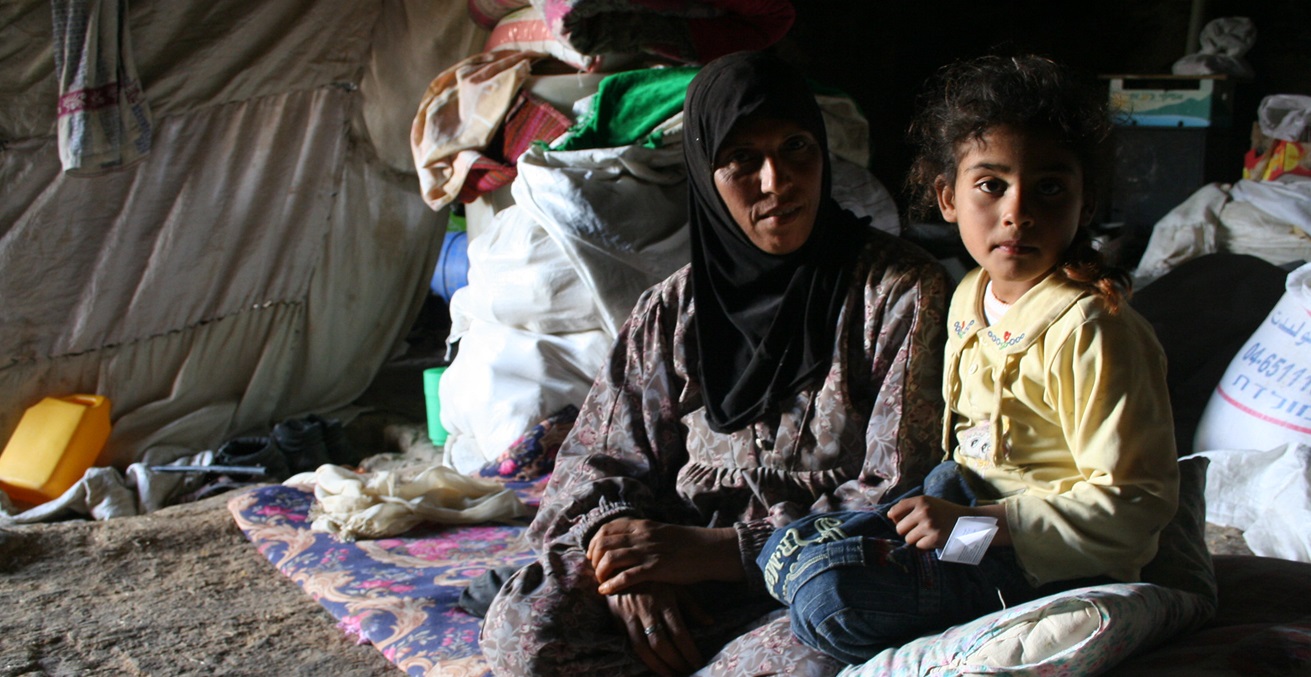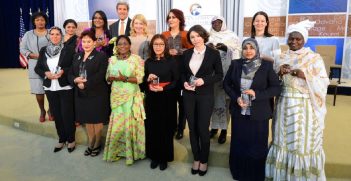Women’s Bodies Pay the Price as Violence Envelops Gaza

The 21st century has witnessed a significant and escalating rise in global warfare and violence. Active conflicts are at the highest levels in decades, with conflict-related deaths quadrupling between 2020 to 2022 alone.
As our globalised society increases in complexity and interconnectedness, so too has conflict. Accompanying the surge and complexity of war is the erosion of moral boundaries and increasing disregard for the ethical conventions prescribed to actors of war.
In particular, the casualties and widespread harms from conflict are no longer predominantly shouldered by militarised groups. Civilians are the primary targets in modern warfare, comprising more than 90 percent of casualties compared with 5 percent in World War 1.
The extensive burdens on civilians in conflict are demonstrated by the current crisis unfolding in Gaza, where over 31, 000 Palestinians have lost their lives to conflict since 7 October, 2023. Notably, Palestinian women and children represent an estimated 70 percent of those killed.
The on-going atrocities irrefutably impact all members of the Palestinian community. However, women, girls, and nonconforming genders endure disproportionate and gender-specific impacts, which directly result from harmful masculinities entrenched in war.
Masculinities in war
The gendered nature of war and conflict is demonstrated by who participates, as well as who it affects and how. Men comprise the majority of actors that start, fight in, and end wars, while women’s agency in conflict is frequently undermined and their participation in efforts to resolve conflict hindered. Further, increasingly hypermasculine norms amid rapid technological advancements in the 21st century influence the escalating brutality of modern conflict.
Just as war is shaped by masculinities, its impacts are likewise gendered. For example, while men are generally more exposed to violence due to their greater presence in militaries, conflict demands women to exercise regular and complex strategizing as they balance survival, resistance, and caring responsibilities in impossible circumstances owing to the pertinence of gendered social norms.
The changing landscape of modern warfare, in which the targeting of civilian populations is increasingly normalised, has arguably increased the severity of gendered ramifications. This is evidenced by the extreme impacts of violence on the reproductive health of women and girls in Palestine, including on pregnancy, childbirth, menstruation, contraceptive access and bodily autonomy.
This discussion does not intend to imply that the value of Palestinian girls and women lies solely in their ability to reproduce, nor does it aim to dismiss the manifold gendered impacts experienced by diverse feminised groups. However, this issue has received little attention across mainstream media, warranting an urgent need for recognition and understanding.
Impacts of armed conflict on reproductive health
War in Gaza is inflicting detrimental impact on the menstrual health of Palestinian women and girls. From medical risks associated with lack of menstrual hygiene, to the psychological impact of young girls getting their periods for the first time in a landscape of violence, menstrual health constitutes an unreachable basic need for Palestinian women and girls in their current context.
For example, access to contraception is limited owing to the widespread destruction of Palestinian medical facilities. Consequently, women and girls are sharing contraceptive pills and consuming medication unsafely. In attempts to mitigate period-related complications that cannot be managed via contraception, women have been using norethisterone tablets where available to delay periods. This frequently results in irregular bleeding, nausea, changes to the menstrual cycle, dizziness and mood swings, compounding extreme bodily stresses ordinarily experienced in conflict zones.
Similarly, access to basic menstrual products – such as pads and tampons – is vastly compromised. This forces women and girls to use menstrual products for longer than recommended, which exacerbates vulnerabilities to disease and infection in an already precarious health context. Poor menstrual hygiene management risks long-term impacts, such as pelvic inflammatory disease which can lead to infertility.
The gendered impacts of conflict also present in the obstetric aspects of reproductive health. An estimated 50, 000 pregnant women are currently in Gaza, with more than 180 women giving birth every day. Since October, over 17,000 Palestinian women have given birth in horrific conditions that pose extensive risk to the health and safety of mothers and their babies alike. For instance, many women have no choice but to undergo emergency C-sections without anaesthesia, often without privacy in overcrowded shelters.
Even mothers who are fortunate enough to access the dwindling medical facilities available often lose their newborns directly after giving birth owing to lack of power to run incubators that would ordinarily keep them alive. The overwhelmingly insufficient care during the broader obstetric process significantly increases the risk of maternal deaths and poor birth outcomes for newborns and mothers.
Further, the psychological impact of pregnancy and childbirth amid constant military attacks triggers stress-induced miscarriages, stillbirths, and premature births. Even in “successful” childbirths, prenatal stress directly impacts fetal development and a child’s development later in life. This not only negatively impacts the health of newborns, but culminates in significant psychological trauma harboured by mothers who feel that they failed to provide adequate care for their newborns.
Weapons-introduced heavy metals
The impacts of heavy metals introduced by weaponry on women’s reproductive health further illustrates the gender-specific harms of armed conflict. As Gaza has experienced pervasive conflict and military exposure since 1948, vast quantities of heavy metal remnants have been identified in both the environment and women’s bodies.
Heavy metal poisoning extensively impacts health, including women’s reproductive systems. For instance, heavy metals enter the food chain and bypass the placenta, resulting in a progressive increase in birth defects and preterm births. This disproportionately impacts women living closer to unmanaged weaponry waste, who have significantly higher quantities of heavy metal remnants than those living further from it.
The wide ranging and damaging biomedical impacts of weaponry on human health have been robustly documented in multiple conflict zones. For the time being, more research is required on how this impacts women in the Palestinian context. However, given the frequent occurrences and scale of military attacks on Palestinian communities spanning multiple decades, heavy metal presence has likely impacted the reproductive health of Palestinian women in a capacity that affects multiple Palestinian generations.
As violence accelerates in 2024, the intensity of compounding insecurities in Gaza produces long-term implications for Palestinian communities that extends beyond immediate traumas.
Palestinian women and girls have revealed their resilience through engaging in various methods of mitigation and resistance in the face of extreme violence and gender-specific hardships. However, increasing violation of the rules of war have eroded their access to reproductive healthcare; the effects of which will reverberate through generations to come.
At the time of this article’s publication, five months of armed violence have decimated Gaza. It is critical that gender responsive humanitarian interventions are urgently prioritised to prevent further suffering, not least of Palestinian women and girls.
Sarah Morley is a Project Coordinator at the Monash Global Peace and Security Centre. Her analytical interests lie at the intersections of gender, conflict and climate (in)security, having undertaken environmental and gender-focused advocacy and research. She holds a Masters of Environment and Sustainability (Governance), a Graduate Certificate of Gender, Peace and Security, and a Bachelor of Arts majoring in International Relations from Monash University.
This article is published under a Creative Commons Licence and may be republished with attribution.





